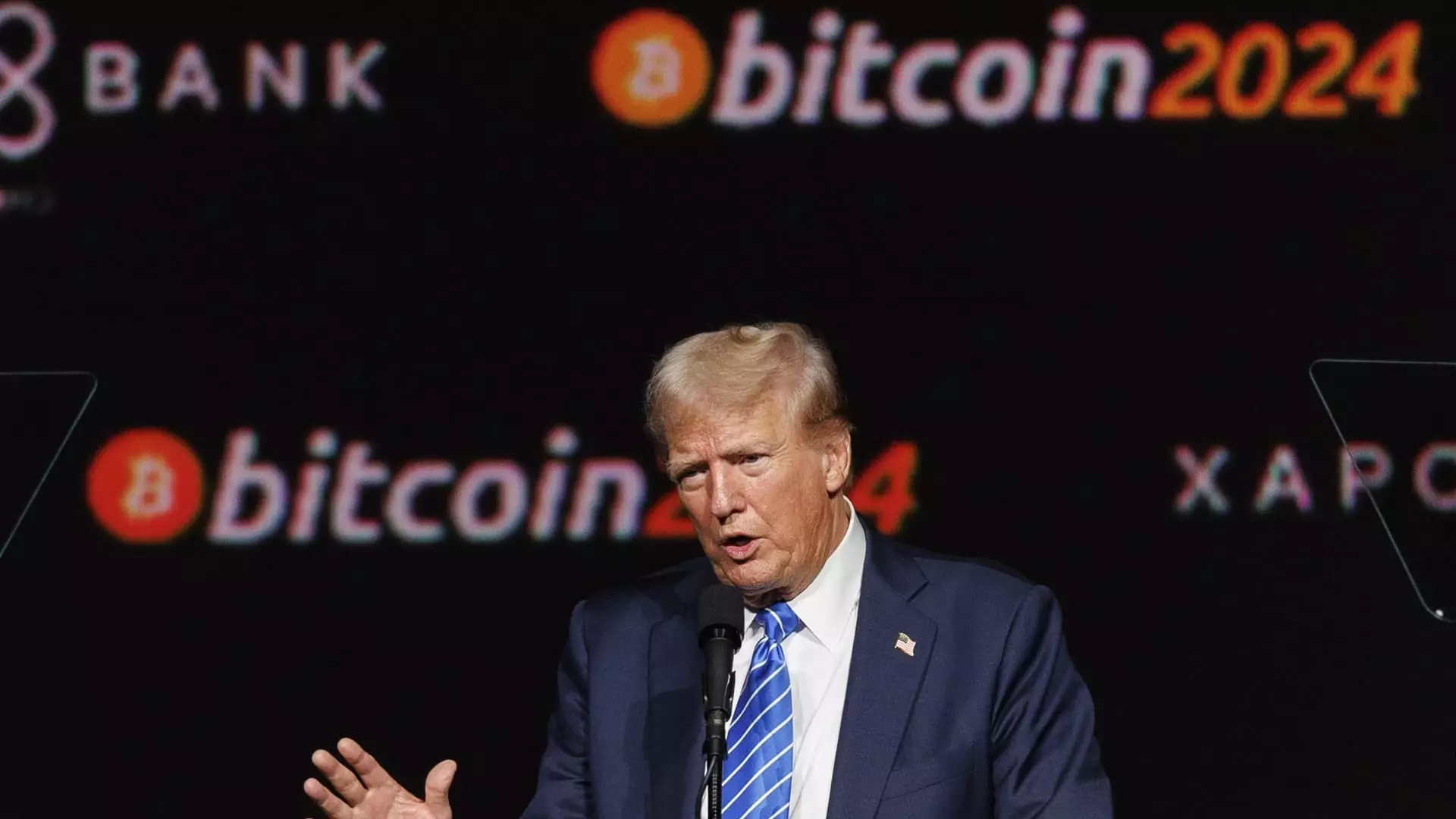The conversation around cryptocurrency’s flourishing market often pivots on political climates, especially in influential nations like the United States. Yet, an examination of current trends in the crypto sphere reveals a multifaceted reality. Cryptocurrency insiders in Singapore have largely brushed aside the notion that the impending U.S. presidential election will significantly sway local or global markets. Discussions at TOKEN2049, a key gathering for cryptocurrency enthusiasts, highlighted the industry’s evolution beyond American politics.
Amidst varying sentiments about political candidates, Charles Hoskinson, the co-founder of the Ethereum blockchain, underscored the potential relevance of U.S. leadership to the crypto community. He indicated that former President Donald Trump’s stance may align more closely with the interests of crypto advocates compared to current Vice President Kamala Harris. Trump’s recent engagements, including his keynote at the Bitcoin Conference, where he proposed ambitious plans to position the U.S. as a global leader in cryptocurrency, certainly paint him as a favorable figure within some sectors of the crypto landscape.
However, Hoskinson’s remarks on the larger shift toward decentralization reveal an underlying truth: the global crypto community is moving forward irrespective of U.S. governance. His observations reflect a broader sentiment within the industry—that countries across the world are adopting crypto-friendly regulations, which may mitigate any potential volatility tied to presidential outcomes in the U.S.
The Bipartisanship of Cryptocurrency Regulation
An interesting element in the discourse is the potential bipartisan approach to cryptocurrency regulation. Anthony Scaramucci, a prominent investment figure, offered insights suggesting that the regulatory frameworks, regardless of who wins the election, may not diverge drastically from one another. He hinted at optimism that Harris will elucidate her position on cryptocurrency regulation, possibly aligning it with principles championed by her predecessors.
Historically, the cryptocurrency sector has suffered from a fragmented regulatory landscape, largely driven by political agendas. Yet, recent textures of bipartisan support for technological advancements suggest a collective understanding of cryptocurrency’s significance for economic competitiveness. Jeremy Allaire, the CEO of Circle, reinforced this notion, suggesting that regardless of the electoral outcome, congressional support for cryptocurrencies is widespread, pointing towards a future where legislative clarity may allow for sustainable growth in the market.
The Financial Impact of Political Contributions
Amid the myriad of discussions surrounding regulation, a financial narrative emerges, as evidenced by the considerable financing funneled from crypto stakeholders to various political candidates in light of the upcoming election. According to data compiled from the Federal Election Commission, over $190 million has been directed toward candidates and Political Action Committees (PACs), with a noticeable skew towards Republican factions. This spending aims to cultivate a friendly regulatory environment for the often maligned fledgling industry, illustrating how crypto-financing is intertwined with political maneuvering.
However, this financial participation should not simply create an illusion of influence over market directions; rather, it underscores the industry’s commitment to advocating for favorable policies. As the election unfolds, there will undoubtedly be scrutiny of these financial ties, yet the actual impact on the market’s resilience and innovation could be much more profound than immediate political affiliations.
As the cryptocurrency industry continues to mature and adapt, the narrative is shifting. While U.S. elections may introduce temporary waves of speculation, the momentum toward decentralization within the global economy cannot be understated. Voices within the crypto community, like those of Arthur Hayes, point out that Bitcoin and its counterparts have thrived amidst regulatory ambiguity, and political winds are unlikely to halt or deter the trajectory of digital assets.
The path of cryptocurrency seems set on a course intertwined with various global regulatory approaches rather than being solely dependent on the political climate of a single nation. As jurisdictions worldwide solidify frameworks that embrace digital assets, the focus will surely shift from what’s unfolding in U.S. politics to how the crypto ecosystem can galvanize and innovate for future generations.


Leave a Reply